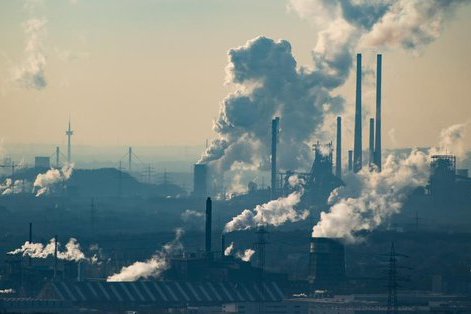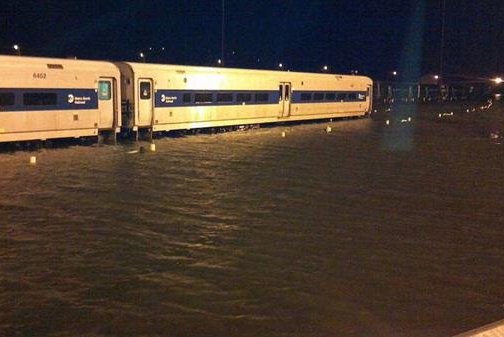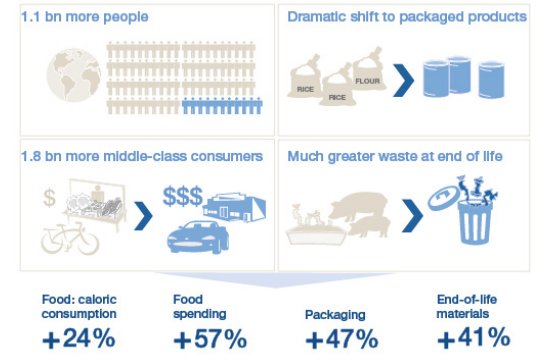|
|
EXISTENTIAL RISKS
CONSUMPTION
|
|
CONSUMPTION causes pollution and climate change because PRODUCTS need to be manufactured, degrading the environment
|

Dangerous heat
|

GHG pollution
|

NYC flooded
|
|
Inpage Navigation
|
|
More consumption gives a better quality of life!
|
GO InPage 'A'
|
|
More consumption is foundation for economic (GDP) growth
|
GO InPage 'B'
|
|
More consumption enables more profit and financial wealth
|
GO InPage 'C'
|
|
More consumption accelerates environmental degradation
|
GO InPage 'D'
|
|
A
|
More consumption gives a better quality of life!
|
GO TOP
|
The answer is YES and NO
When there is shortage of essential products ... that is goods and services ... more consumption means that the shortages have been alleviated and there is a better quality of life.
TPB Note: I am old enough to remember the shortages in the UK during the Second World War and for a long time afterwards. In the UK, rationing was a way of life lasting into the early 50s. The shortages in Continental Europe were considerably worse than in the UK during the war, but eased faster after the war courtesy of initiatives like the Marshall Plan.
In more recent times, shortage has given way to abundance in the world's rich countries, and the relationship between consumption and quality of life has changed. More and more people are eating too much and becoming overweight and obese. Health issues like diabetes are more prevalent with abundance than with shortage.
But there is a point where more consumption does not do very much to improve quality of life. Not enough good food is a problem, but so is the excessive consumption of good food that results in obesity and health issues like diabetes. When a person is short of food, health, shelter, education, clothing, having more of these things adds to quality of life, but when a person has enough of these things, more does not add very much, if anything at all to quality of life.
|
|
B
|
More consumption results in GDP growth
|
GO TOP
|
This is true
But GDP is a dangerous measure ... its limitations were recognized by prominent economists like Kuznets who had a big role in developing the measure and political leaders like Robert Kenneday who described all its weaknesses in a famous speach in 1968.
It seems to remain in use for two big reasons:
The first is that the corporate world finds it a lot easier to generate profits when the economy is growing than in other conditions. Making GDP growth a goal of economic policy makes corporate management a whole lot easier.
TPB Note: I had a series of corporate financial positions in the late 60s and through the 70s. The GoGo years of the 1960s made profit growth easy, while the post GoGo stagnation of the 1970s were a whole lot harder.
The second is that there is a lot of intertia in modern governance.
TPB Note: I participated in a conference workshop several years ago (around 2007?) where several people who worked for the National Bureau of Statistics explained the steps that would be needed in order to change the way GDP gets calculated ... and the virtual impossibility of getting consensus about actually changing to something else, no matter how much better!
|
|
C
|
More consumption delivers more profit
|
GO TOP
|
True ... more consumption means more sales, more profits and more wealth
The problem is that more consumption means more production ... and production is a big problem for sustainability.
The phrase 'Its money that makes the world go round' might be better expressed with reference to profits. For a very long time, corporate decisions have been made almost exclusively in order to make more profit with a view to maximising stockholder value. Because maximising profit has been of such importance, business strategy has concentrated on doing whatever it takes to make more profit. The easiest way to make more profit is to have more sales, which happens when there is more consumption.
Advertising is one of the ways the corporate world invests to encourage more consumption. While the advertising talks about how much better the customer will feel, the underlying purpose is simply to get people to buy more stuff.
|
|
D
|
... and more environmental degradation
|
GO TOP
|
True ... and a very serious issue
The United States (and Canada) have extremely high standards of living and high levels of consumption. These countries are also the largest per capita emitters of greenhouse gases and have been responsible for all sorts of other environmental pollution.
Consumption requires production and a complete supply chain prior to final sale. Almost every element of natural capital is depleted or degraded by the supply chain required to support consumption.
In the main, the supply chain is driven by mainly by price without much consideration of the impacts within the supply chain of impact on people (mainly the workforce) and on the environment. Until very recently everything to do with 'externalities' ... that is impact on people and the environment ... has been ignored. Increasingly consumers are taking these matters into consideration, but reliable information about corporate behavior through the wholc of the supply chain remains very weak.
More and more, 'stories' are surfacing about the behavior of companies known to be suppliers of 'brand' goods being sold in rich countries ... but comprehensive information remains elusive. This is one of the challenges to be addressed by TVM and a wide range of activists and well-meaning collaborators.
|
|
Consumer effects ... (source: Ellen MacArthur Foundation).
|

|
There is ever-increasing demand for resources:
*** In the past 100 years the global population has quadrupled.
*** In the twentieth century prosperity – GDP – increased by a factor of 25
*** the demand for construction materials increased by a factor of 34.
*** The demand for energy doubled in the last 40 years.
*** The demand for energy is expected to grow an additional 50% in the coming 20 years
TPB comment: I believe the following text comes from the above report ...
'Such increased demand in the face of limited supply has put a strain on resource prices and increased their volatility. This leads to increased uncertainty about costs and prices, in the end reducing economic stability.'
From a management point of view this commentary is worse than useless. It introduces excuses rather than being laser focused on the problem and how the problem has to be solved. The problem is that there is a very large consumption and growing, this calls for very large production which causes very large environmental degradation and resource depletion. This must be solved by (1) changes in consumption, both less consumption and more impact efficient consumption; (2) very much more impact efficent production processes; and (3) better product design so that there is less waste and greater ability for long term reuse.
|

|
What is going to be the impact on society and the environment when India and China have the same level of consumption and standard of living that has become the norm in Europe and North America?
|
For PEOPLE:
CONSUMPTION is required to satisfy basic needs. For most of history there has been a strong correlation between an increase in consumption and an improved quality of life and standard of living. This has been a fundemental reality in a world where shortage was normal. But, over the past 100 years improvements in technology have changed the suply of goods and services from one of endemic shortage to surplus.
For BUSINESS:
CONSUMPTION is good, because it means that more PRODUCTS are purchased, and more SALES REVENUES generates more PROFITS.
For the SUPPLY CHAIN:
more CONSUMPTION means more PRODUCTS flow through the SUPPLY CHAIN creating economic activity and profits along the way.
BUT
MORE CONSUMPTION and MORE PRODUCTION also means more impact on NATURAL CAPITAL and the ENVIRONMENT where there is both DEPLETION and DEGRADATION.
|
|
|
|

